
Recruitment for the 2025 Hiroshima University Early-Career Faculty Overseas Dispatch Program (HU Global-TOBU! Program for early career researchers)
Details available here (internal only).


Details available here (internal only).
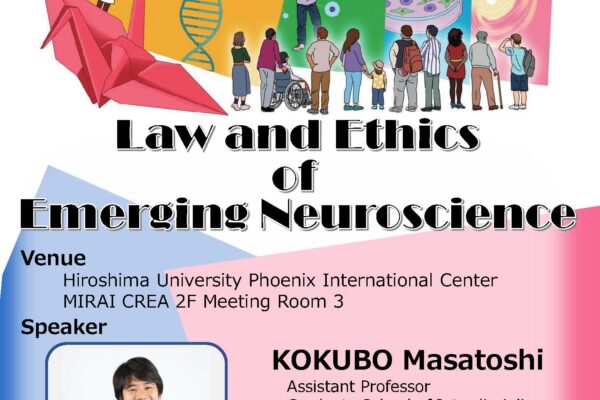
Neuroscience has made remarkable progress since the beginning of this century. This field holds the potential to elucidate the causes of neurological diseases and alleviate the suffering of patients. However, it may also raise various ethical, legal, and social concerns regarding the extent to which it is permissible to record and analyze—or “read”—human brain activities, as the brain is considered to be a special organ deeply connected to our mind and personality. This seminar aims to provide a platform for understanding the latest discourse about the global governance of emerging neuroscience, particularly in the field of “neurolaw,” and foster discussions about the future of society we can and should aspire to build through cutting-edge neurotechnology. For more information (incl. Registration Form) Registration Deadline: August 4, 2025, 12:00 p.m. (JST)
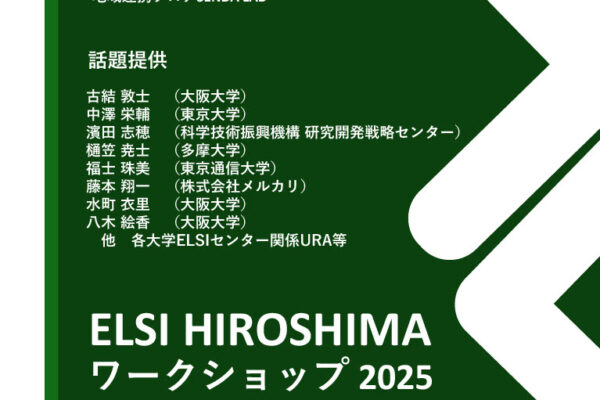
Details available here (in Japanese)
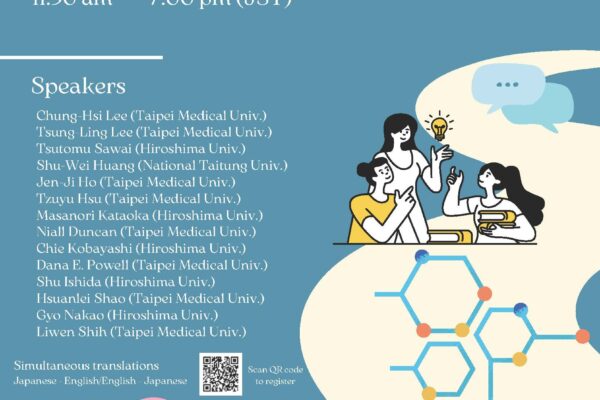
Hiroshima University Graduate School of Integrated Arts and Sciences, Department of Applied Ethics, in collaboration with Taipei Medical University, is pleased to announce the 2025 Taiwan-Japan International Symposium “Emerging Technologies and Society: Bridging Ethics, Law, Security and Resilience.” This symposium will address the ethical, legal, and security challenges arising from rapidly advancing scientific and technological developments. We anticipate that the active exchange of ideas between our distinguished speakers and participants will provide a valuable forum for deepening our collective insights. We cordially invite all interested individuals to join us for this engaging event. ・Here is the form for online participation. ・For more information
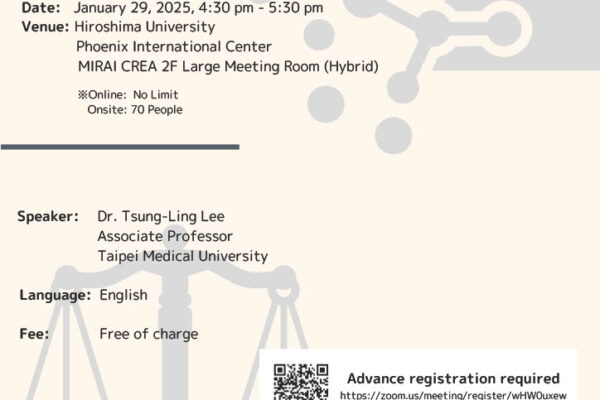
For more Information (incl. Registration Form)
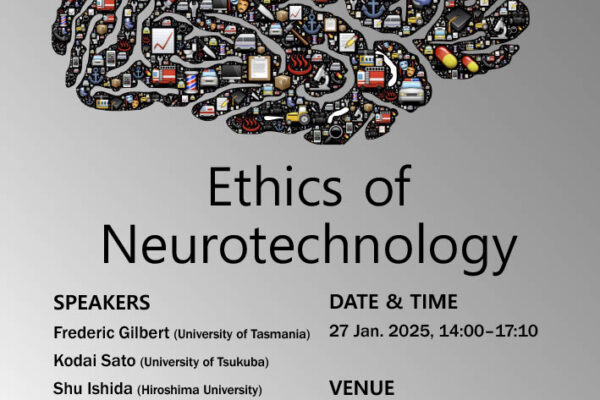
In recent years, there has been significant progress in the development of technologies for recording of and intervening in brain and nervous activity, called “neurotechnology.” While neurotechnology has a wide range of potential usage, from basic neuroscientific research to medical applications and even to entertainment, it also raises a number of ethical concerns. In this workshop, such ethical issues will be examined through international collaboration of ethicists to guide future development of neurotechnology. Details available here (Incl. Registration Form)
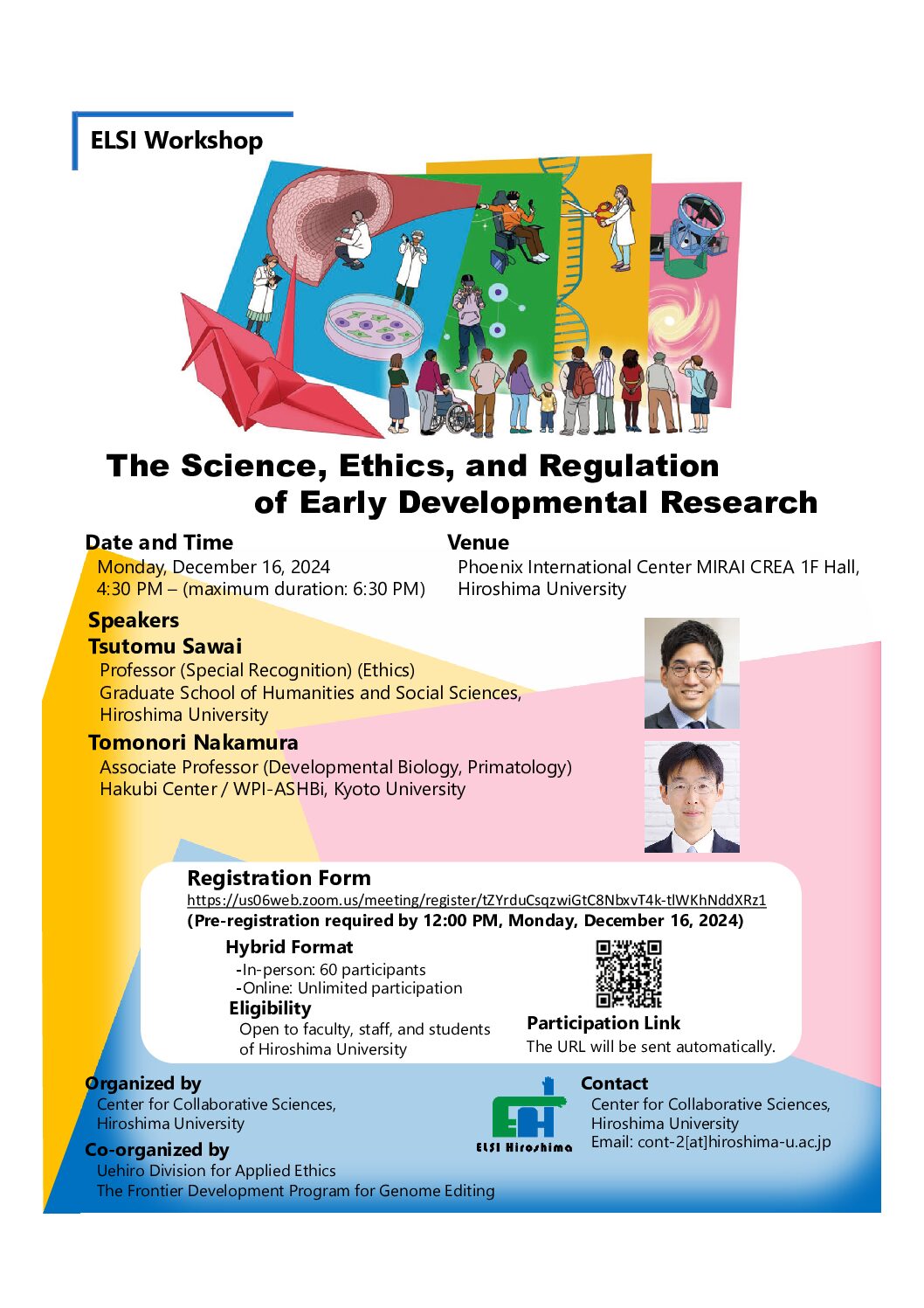
Over the past decade, research on early human development has made remarkable strides. This field has the potential to bring significant benefits to many people, including patients. However, it also raises profound ethical questions regarding the extent to which embryos can be used in research and whether it is permissible to create embryos artificially. This workshop aims to provide a platform for understanding the latest scientific advancements while fostering discussions about the kind of society we should aspire to build through early development research. For more information
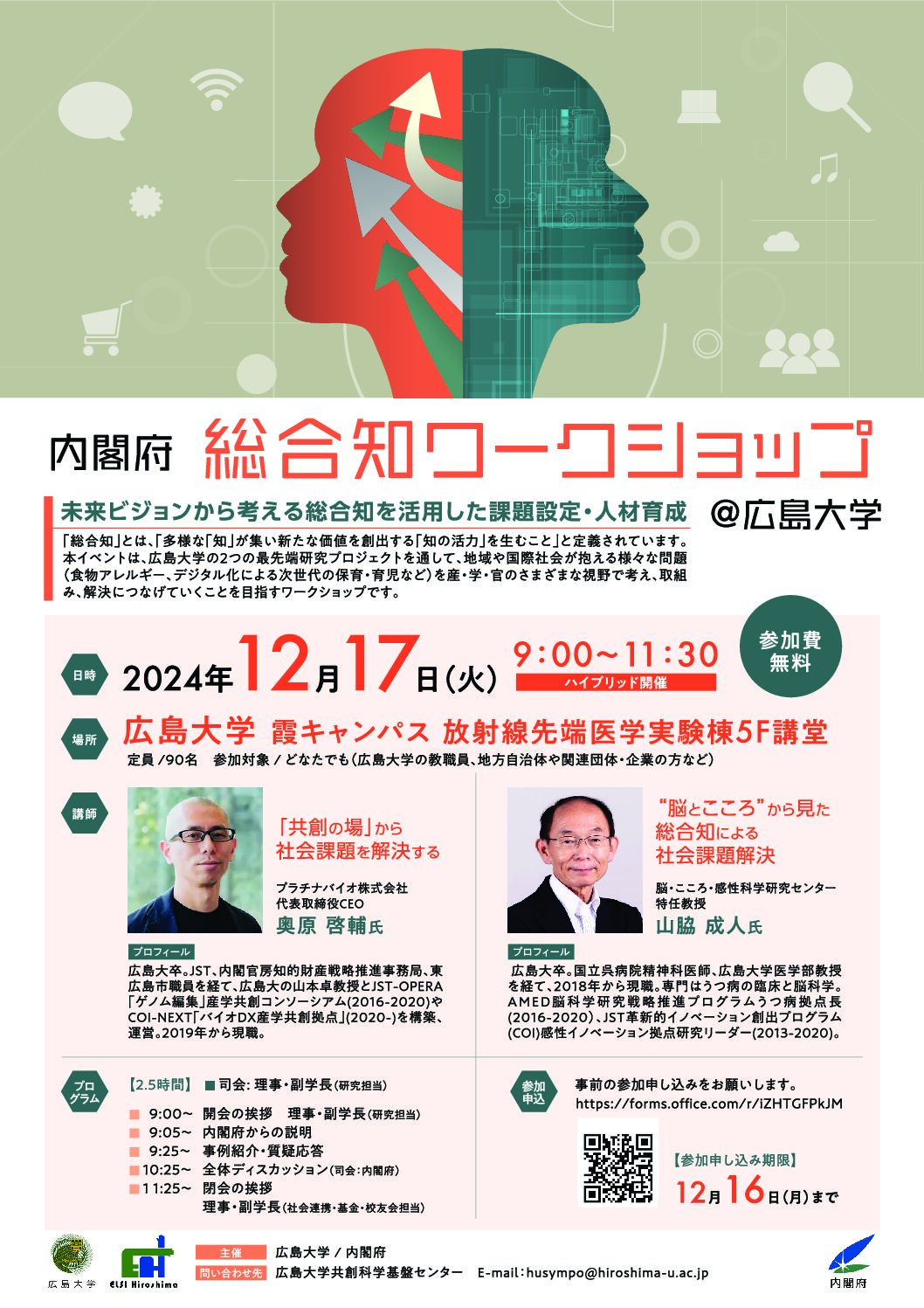
Here is the link to the details (in Japanese).
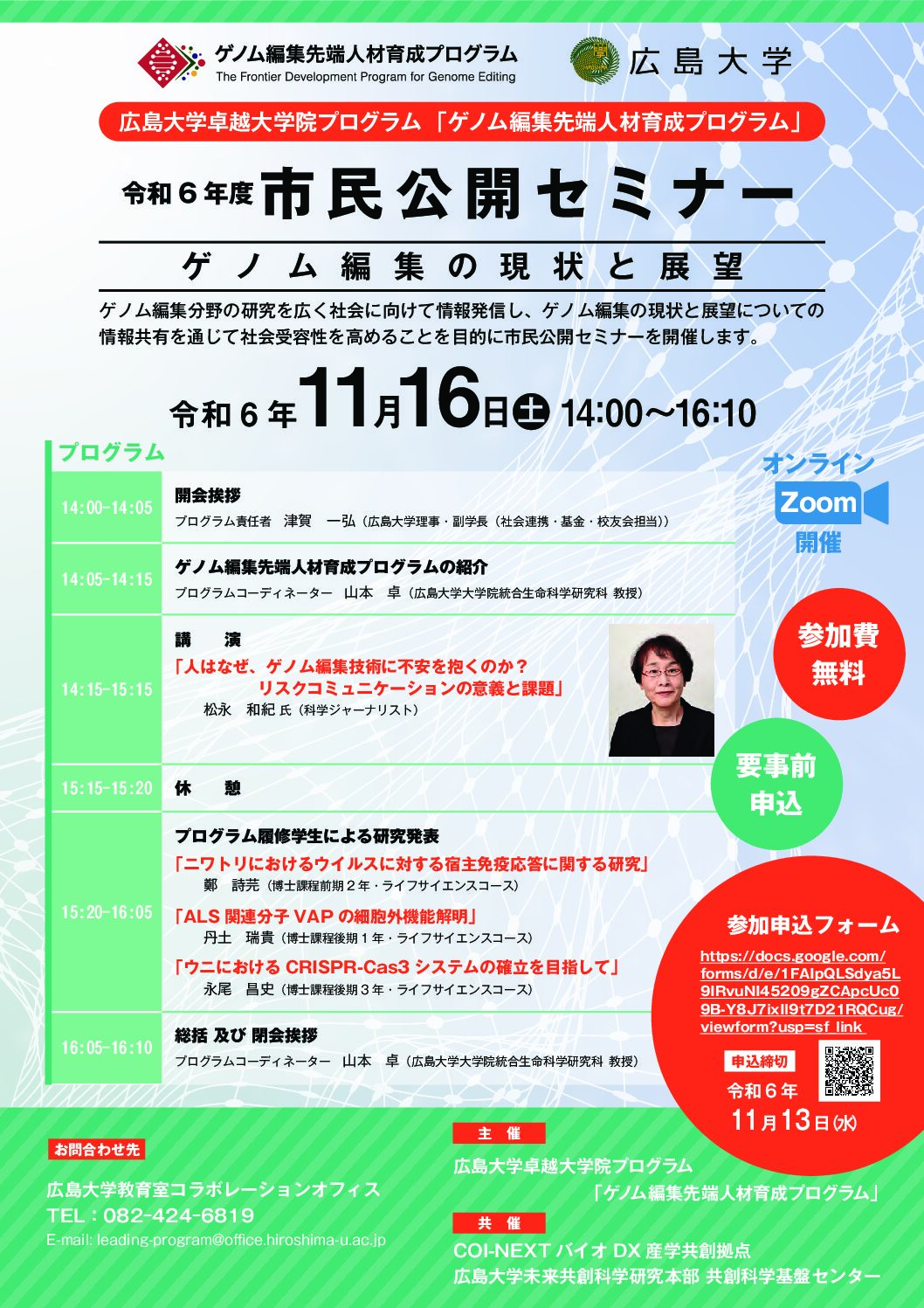
Here is the link to the details (in Japanese).
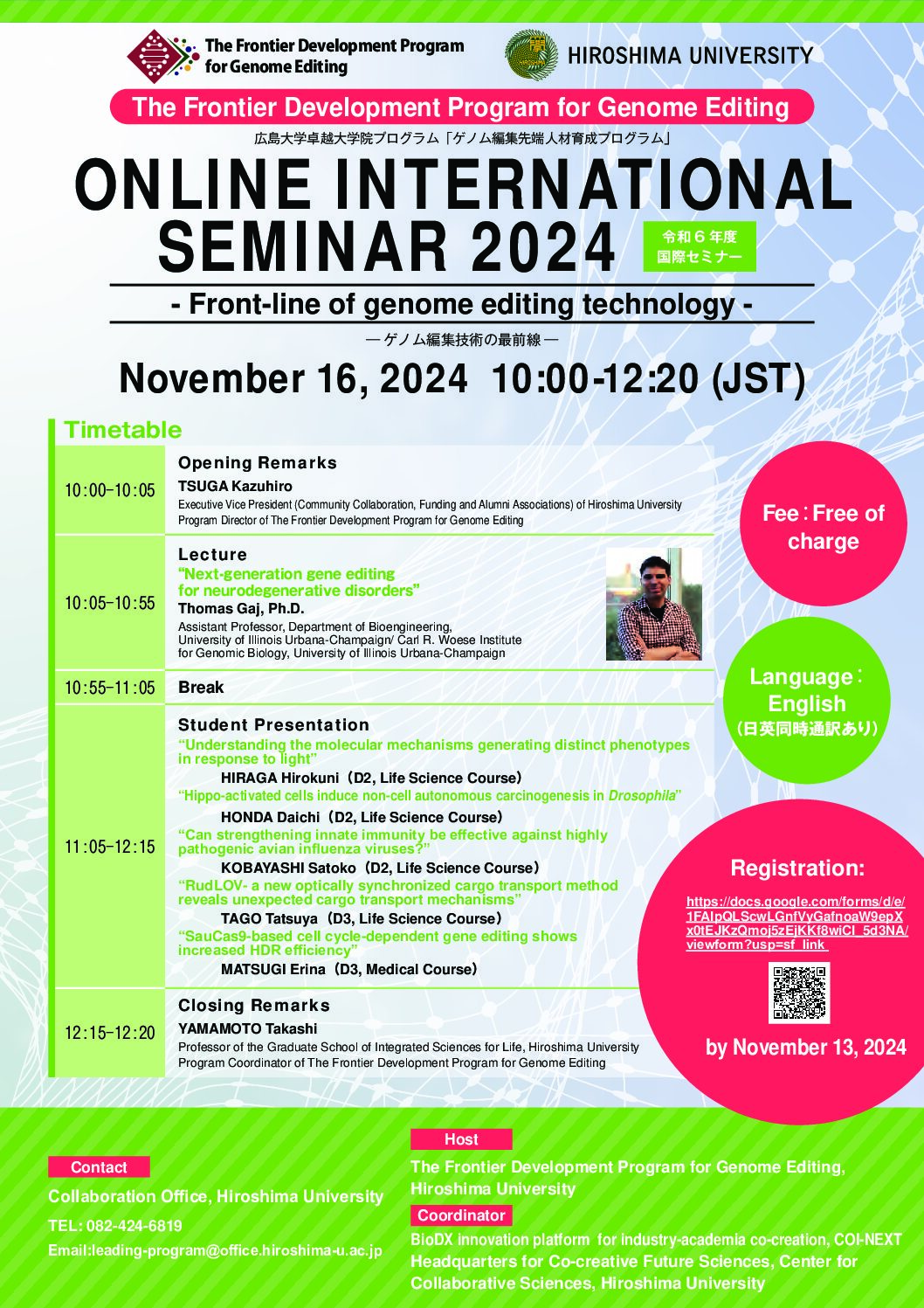
Here is the link to the details.